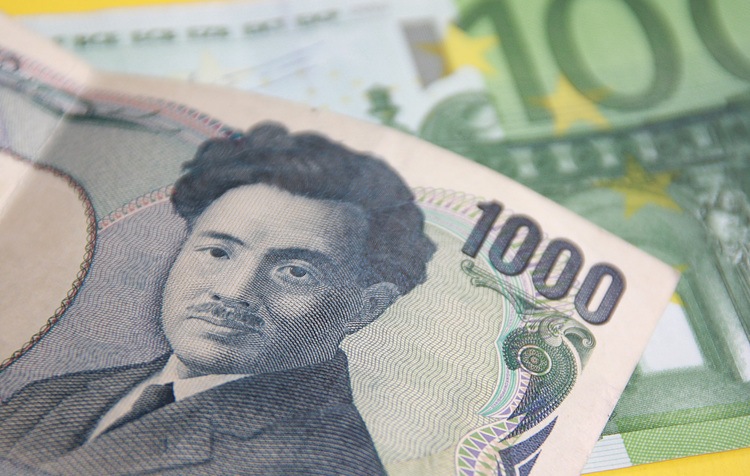The EUR/JPY cross has gained momentum and reached around 164.35 during Wednesday’s Asian trading session. The Japanese Yen has weakened against the Euro due to uncertainty surrounding a potential rate hike by the Bank of Japan. The lack of clear direction from the BoJ policymakers regarding the timing of a rate hike, along with political uncertainty in Japan, has raised doubts about the central bank’s ability to tighten its monetary policy. This has weighed on the JPY and provided support for EUR/JPY.
On the Euro front, European Central Bank (ECB) officials have been discussing the possibility of further interest rate cuts. ECB Governing Council member Martins Kazaks stated that the central bank should continue cutting interest rates gradually, while ECB policymaker Olli Rehn indicated that further easing may be likely in the near future. Market expectations have priced in another 25 basis points rate cut from the ECB in its December meeting, with the ECB’s deposit facility currently at 3.25%.
The performance of the Japanese Yen is influenced by various factors such as the Bank of Japan’s policy decisions, the differential between Japanese and US bond yields, and risk sentiment among traders. The BoJ has historically intervened in currency markets to control the value of the Yen, although it refrains from doing so frequently due to political concerns. The BoJ’s ultra-loose monetary policy between 2013 and 2024 led to a depreciation of the Yen against its main currency peers, but the gradual unwinding of this policy has provided some support to the Yen in recent times.
In the past decade, the BoJ’s commitment to ultra-loose monetary policy has widened the policy divergence with other central banks, particularly the US Federal Reserve. This has favored the US Dollar against the Japanese Yen, as the differential between US and Japanese bond yields has widened. However, the BoJ’s decision to gradually abandon the ultra-loose policy, along with interest rate cuts by other major central banks, is narrowing this differential. The Japanese Yen is also considered a safe-haven investment, meaning that investors tend to flock to the currency during times of market stress due to its perceived reliability and stability.
In conclusion, the EUR/JPY cross has seen gains in the Asian session as the Japanese Yen weakens against the Euro amid uncertainty surrounding a potential rate hike by the Bank of Japan. On the Euro front, ECB officials are considering further interest rate cuts, with market expectations pricing in another rate cut in December. The performance of the Japanese Yen is influenced by various factors, including the BoJ’s policy decisions, the interest rate differentials, and risk sentiment among traders. The Yen’s status as a safe-haven investment also plays a role in determining its value against other currencies.










